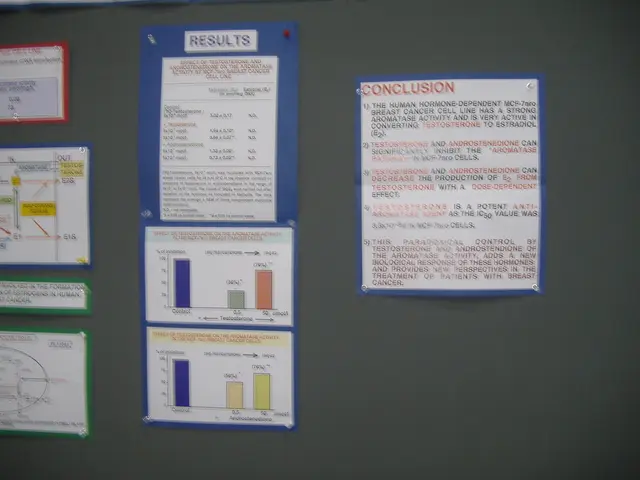Revolutionizing Manufacturing with Industry 4.0 and its Data-Driven Transformations!
Revolutionizing Manufacturing: The Rise of Data-Driven Industry 4.0
In the ever-evolving world of industry, the manufacturing sector is undergoing a significant transformation, driven by the adoption of cutting-edge technologies and data-centric approaches. This transformation, often referred to as Industry 4.0, is reshaping the manufacturing landscape, making factories smarter and more efficient.
At the heart of Industry 4.0 lies data. With data being central to this revolution, manufacturers are harnessing its power to optimise their output and ensure responsive and efficient production systems. One of the key ways this is achieved is through predictive demand forecasting, a strategy that has proven successful in the retail sector and is now increasingly common in manufacturing.
Predictive demand forecasting enables manufacturers to predict which products need to be produced in large quantities and which manufacturing plants should handle which products. This forecasting not only helps in optimising output but also reduces the number of defective products and quality deviations by assessing and monitoring the data from products not meeting quality standards.
The integration of Industry 4.0 technologies, such as cloud computing, cognitive computing, artificial intelligence, big data, machine learning, and the Internet of Things (IoT), is fundamental to this transformation. Companies and facilities using the Industry 4.0 philosophy incorporate embedded software, robotics, and advanced sensors to collect and analyse data for decision-making and improvements in the manufacturing process.
The benefits of this data-driven approach are manifold. For instance, real-time analytics and digital twins help optimise production workflows and processes without halting operations, resulting in productivity gains of 15–30% and improved Overall Equipment Effectiveness (OEE).
Moreover, predictive analytics, powered by big data, analyse historical and real-time equipment data to forecast failures before they occur, allowing proactive maintenance. This not only reduces downtime but also results in substantial operational cost savings (10–30%).
The automation of the inspection process through AI, machine learning, and computer vision using high-resolution imagery and sensor data from IoT devices enables immediate identification and rectification of quality issues, significantly improving product standards and reducing defective output.
Industry 4.0 also empowers manufacturers to provide evidence of product development, manufacturing, and testing to customers, fostering transparency and trust.
As Industry 4.0 matures, more technologies will be integrated into manufacturing to make factories and plants smarter. Predictive maintenance, for instance, will become commonplace, allowing manufacturers to monitor machines and predict which ones need maintenance or are likely to fail.
In conclusion, big data underpins Industry 4.0 by enabling continuous, AI-powered monitoring and analytics that improve product quality, reduce operational disruptions and costs, enhance throughput, and sharpen demand forecasting. This data-driven approach is essential for increasing efficiency, output, and controlling the entire manufacturing process. The future of manufacturing is undeniably data-driven, and it's an exciting time to witness this transformation unfold.
[1] https://www.mckinsey.com/business-functions/mckinsey-digital/our-insights/the-digital-transformation-of-the-automotive-industry [2] https://www.mckinsey.com/business-functions/mckinsey-digital/our-insights/the-digital-transformation-of-the-aerospace-and-defense-industry [3] https://www.mckinsey.com/business-functions/mckinsey-digital/our-insights/the-digital-transformation-of-the-consumer-packaged-goods-industry [4] https://www.mckinsey.com/business-functions/mckinsey-digital/our-insights/the-digital-transformation-of-the-industrial-sector [5] https://www.mckinsey.com/business-functions/mckinsey-digital/our-insights/the-digital-transformation-of-the-energy-industry
Read also:
- Catastrophe at a U.S. Steel facility in Pennsylvania results in the loss of two lives. crucial details unveiled
- Fructose Market Set to Top USD 8.1 Billion by 2034
- Powered by BMW, the Morgan Supersport Hails as a 335HP Ode to Britain's Motor Tradition
- Scout Motors Confident about Steady Electric Vehicle Sales during 2027 Launch on WardsAuto Podcast








